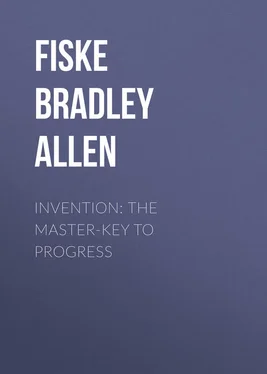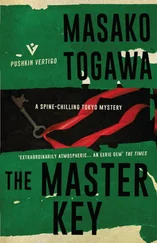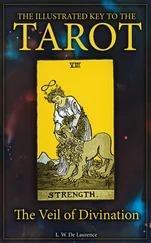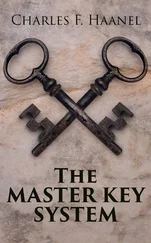Bradley Fiske - Invention - The Master-key to Progress
Здесь есть возможность читать онлайн «Bradley Fiske - Invention - The Master-key to Progress» — ознакомительный отрывок электронной книги совершенно бесплатно, а после прочтения отрывка купить полную версию. В некоторых случаях можно слушать аудио, скачать через торрент в формате fb2 и присутствует краткое содержание. Жанр: foreign_antique, foreign_prose, на английском языке. Описание произведения, (предисловие) а так же отзывы посетителей доступны на портале библиотеки ЛибКат.
- Название:Invention: The Master-key to Progress
- Автор:
- Жанр:
- Год:неизвестен
- ISBN:нет данных
- Рейтинг книги:4 / 5. Голосов: 1
-
Избранное:Добавить в избранное
- Отзывы:
-
Ваша оценка:
- 80
- 1
- 2
- 3
- 4
- 5
Invention: The Master-key to Progress: краткое содержание, описание и аннотация
Предлагаем к чтению аннотацию, описание, краткое содержание или предисловие (зависит от того, что написал сам автор книги «Invention: The Master-key to Progress»). Если вы не нашли необходимую информацию о книге — напишите в комментариях, мы постараемся отыскать её.
Invention: The Master-key to Progress — читать онлайн ознакомительный отрывок
Ниже представлен текст книги, разбитый по страницам. Система сохранения места последней прочитанной страницы, позволяет с удобством читать онлайн бесплатно книгу «Invention: The Master-key to Progress», без необходимости каждый раз заново искать на чём Вы остановились. Поставьте закладку, и сможете в любой момент перейти на страницу, на которой закончили чтение.
Интервал:
Закладка:
Shortly afterward Alexander reached the town of Gaza, the great stronghold of the Philistines. It stood on high ground, and was more than two miles from the sea. Alexander's engineers reported to him that, as the fleet could not assist them, and as the walls were themselves very high and stood on a high hill, the walls could never be stormed. Things looked serious. They were serious; and failure would then have come to any man, except a man like Alexander. He cut the Gordian knot by ordering that ramparts be thrown up as high as the top of the walls, and war engines placed on the ramparts. This was done, and the city was taken.
Alexander's campaigns in Egypt, and afterward in western Asia, were characterized by the same quickness and daring, both in conception and in execution, that had marked his opening campaigns in Greece. Later, when advancing toward Persia, he encountered a tribe of hillsmen in the Uxian Pass, who, like the Thessalians and the Thracians, thought they had blocked his passage by opposing him in so narrow a defile. Alexander literally "circumvented" them by making a night march over a difficult mountain pass, and astonishing them by an attack on their rear the following morning. Shortly afterward a like situation presented itself, when an army opposed him in a narrow defile called the Persian Gates, that was fortified with a wall. Alexander soon realized that the position of his enemy was impregnable. He learned, however, that there was a path that led around the pass, though it was exceedingly dangerous, particularly to men in armor and to horses, and especially at that time, when snow and ice were on the ground. He again utilized his former invention (circumvention) and with his former success; though the conditions under which it was accomplished were much more difficult.
The four examples just given of literally circumventing an uninventive enemy illustrate in the simplest form the influence of invention on military history.
After it became clear to Alexander that his invasion of Asia would be successful from a military point of view, his active imagination presented to his mind a picture of a grand and noble empire, embracing the whole world, but dominated and inspired by the spirit of the civilization of Greece. To develop this conception into an actual reality, became at once the object of his efforts. To develop it, he decided to adopt in some measure the characteristics and dress of the people in whatever province he might be, and to take such steps in organizing provinces, founding cities and establishing systems, as to weld all into one empire, under himself, as ruler. One can hardly credit the authoritative account he reads of Alexander's bewildering success. He seems not only to have won battles, and built cities, and organized provinces, but actually to have super-posed Greek civilization on Persian civilization!
In one of his most important later battles, Alexander again utilized his inventiveness. If he had not done so, he would assuredly have lost the battle. It was against King Porus in northwestern India. Alexander found the forces of Porus encamped on the opposite side of the Hydaspes River, with the evident intention of preventing him from crossing. As the army of Porus in men alone was evidently equal to his own, and as it was reinforced with a multitude of elephants, Alexander was apparently confronted with a problem impossible of solution. It would have been impossible to anyone but a man like Alexander. He, however, by means of various feints and ingenious stratagems, managed to get across at night about sixteen miles up the river, using boats that he had constructed, and floats of skin stuffed with straw. Porus took up a position on the opposite shore and made ready to receive attack, his front preceded by war chariots and elephants. Alexander had neither; but he did have brains and originality. So he simply held the enemy with his infantry, and then made a determined attack with cavalry and archers on the enemy's left flank, and especially on the elephants. The elephants soon got beyond control; and the rest of the battle was a fight between a highly trained Macedonian phalanx, assisted by cavalry, and an Oriental mob.
Alexander died in Babylon when not quite thirty-three years old. In actual and immediate achievement he surpassed perhaps every other man who has ever lived. He founded an empire which he himself had conceived and developed, which covered nearly all the then known world, and which, though it was composed mainly of barbarous and semi-barbarous people, was dominated by Greek thought. It is true that the empire fell apart almost immediately after Alexander died. But it did not fall into anarchy, or revert to its previous state: it was divided into four parts, each of which was distinct, self-governing and well organized. The two larger parts, the kingdom of the Seleucidæ, which occupied approximately the territory of Persia, and the kingdom of the Ptolomies, or Egypt, continued as torch-bearers to civilization for many centuries thereafter.
Of the two, the former was the larger and was probably the better, from an administrative point of view; but Egypt represented the finer civilization; for Alexandria, with its library and its wonderful museum, became the seat of learning and the resort of the scholars of the world, and the centre of the Hellenistic civilization that followed that of Greece.
This Hellenistic civilization, it may here be pointed out, was in some respects as fine as that of Greece, and in some respects was finer, because it was more mature. But (perhaps for the reason that it was more mature) it lacked much of the element that was the highest in the Greek, the element that gave Greek civilization greater influence on history than any other civilization ever had – the creative element. The creative period of Greece ceased when her political liberty was lost. Furthermore, the immense amount of wealth that poured into the Grecian cities and the Græco-Oriental world, by reason of the putting into circulation of gold that had been stored away in Oriental palaces, as well as by the commercial exploitation of the riches of the East, brought about a general effeminizing of all classes of society, and the consequent dulling of their minds.
Nevertheless, there was great intellectual activity in the Græco-Oriental world, and a certain measure of invention, though little was of a basic kind. Euclid improved the science of geometry, and put it in virtually the same shape as that in which it has been taught since, even to this day. Aristarchus, the astronomer, announced the doctrine that the earth revolves around the sun and rotates on its own axis; and Hipparchus invented the plan of fixing the positions of places on the earth by their latitudes north and south of the Equator and their longitude east or west of a designated meridian. Hippocrates and Galen conceived and developed the foundations of the science of medicine of the present day. Eratosthenes estimated with extraordinary accuracy the circumference of the earth, and founded the science of geography.
But the greatest of all of the original workers of that time was Archimedes, who lived at Syracuse in Sicily, and was killed by mistake when Syracuse was captured in the year 212 B. C., while engaged in drawing a geometrical figure on the sand. His principal fame is as a mathematician; but as a great inventor of mechanical appliances, he is the first man recognized as such in history. The invention with which his name is most frequently linked is that of the Archimedean screw. This consisted of a tube, wound spirally around an inclined axle, and so disposed that when the lower end of the tube was dipped into water and the axle was rotated water would rise in the tube – as shavings do when a screw is screwed down into wood. It constituted a very convenient pump and was so used. This was, of course, a mechanical invention of the utmost originality and value, and forms one of the clearly defined stepping-stones to civilization.
Читать дальшеИнтервал:
Закладка:
Похожие книги на «Invention: The Master-key to Progress»
Представляем Вашему вниманию похожие книги на «Invention: The Master-key to Progress» списком для выбора. Мы отобрали схожую по названию и смыслу литературу в надежде предоставить читателям больше вариантов отыскать новые, интересные, ещё непрочитанные произведения.
Обсуждение, отзывы о книге «Invention: The Master-key to Progress» и просто собственные мнения читателей. Оставьте ваши комментарии, напишите, что Вы думаете о произведении, его смысле или главных героях. Укажите что конкретно понравилось, а что нет, и почему Вы так считаете.












